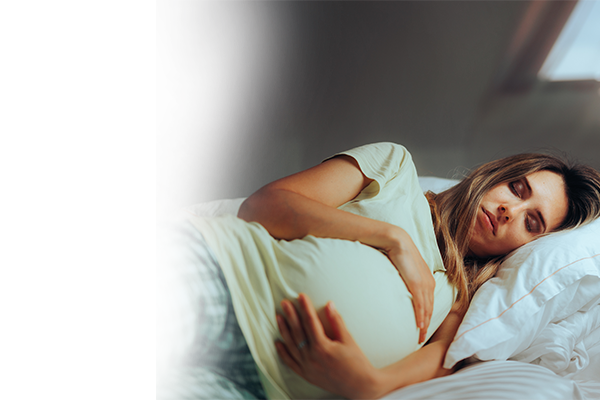Many expectant mothers experience urinary tract symptoms during pregnancy. During this time, anatomical and functional changes occur in the kidneys, ureters, and bladder. These changes can lead to the development of urinary tract diseases. Why should asymptomatic bacteriuria always be treated during pregnancy? What urinary symptoms are most common in pregnant women?
Physiological changes of the urinary tract during pregnancy
During pregnancy, the female body undergoes numerous changes in various organs and systems to create optimal conditions for the development of the child. In the urinary tract, this physiologically results in an enlargement and increased volume of the kidneys. The renal pelvis and calyces also expand. These changes favor, among other things, the formation of kidney stones. There is also urinary retention in the bladder and an increased glucose concentration in the urine, which can promote the development of asymptomatic bacteriuria. Additionally, the pH level of the urine changes during pregnancy, increasing susceptibility to infections. The ureters of pregnant women dilate, which can cause up to 300 ml of urine to back up into the kidneys—an ideal environment for bacteria and thus for the development of acute pyelonephritis.
Many women report frequent urination during pregnancy. This is due to several factors, including the growing uterus, which limits bladder capacity. Moreover, the glomerular filtration rate (GFR)—which measures how many milliliters of blood are filtered through the kidneys per minute—increases physiologically in all pregnant women. This rise in filtration leads to more frequent urination.
Asymptomatic bacteriuria in pregnancy – why should it be treated?
According to medical guidelines, every pregnant woman should have a general urine test each month and a urine culture once per trimester. One goal of these regular screenings is the early detection of bacteria in the urine. Asymptomatic bacteriuria—the presence of bacteria in the urine without symptoms—occurs in 2–10% of pregnancies. The most common pathogens are E. coli, P. mirabilis, and Klebsiella.
Treatment depends on the specific pathogen identified. Commonly used antibiotics include penicillins, cephalosporins, and nitrofurantoin. However, nitrofurantoin should only be administered after the 13th week of pregnancy.
If left untreated, asymptomatic bacteriuria can lead to acute pyelonephritis, which may have serious consequences for the fetus.
Common urinary tract conditions in pregnancy:
Kidney stones (urolithiasis)
The risk of kidney stones during pregnancy is not higher than in non-pregnant women. Symptomatic urolithiasis occurs in approximately 1 in 2,000 pregnancies. Common symptoms include severe pain and recurrent urinary tract infections.
In cases of uncomplicated urolithiasis, doctors usually recommend conservative treatment, as the stones often pass spontaneously. However, if symptoms persist or worsen, there is a risk of kidney dysfunction or urosepsis. A safe treatment method during pregnancy is ureteroscopy under anesthesia.
Acute bladder infection (cystitis)
Occurs in 1–2% of pregnant women. Typical symptoms include urgency, frequent urination, pain in the bladder area, and burning during urination. Treatment is with oral antibiotics. A follow-up urine culture should be performed two weeks after completing treatment.
Acute pyelonephritis
This is one of the most common non-obstetric reasons for hospitalization during pregnancy and is often the result of untreated asymptomatic bacteriuria. E. coli is usually the cause.
Complications include low birth weight, preterm birth, circulatory failure, and kidney failure in the mother. Typical symptoms are high fever, flank pain, vomiting, and urinary discomfort. Treatment always requires hospitalization and intravenous antibiotics.
Statistically, this condition most often occurs in the second and third trimesters.
Pregnancy after kidney transplantation
Women who have had a kidney transplant are advised to wait at least 1–2 years before becoming pregnant. During pregnancy, these patients require close monitoring by an interdisciplinary medical team. There is an increased risk of high blood pressure, preeclampsia, and gestational diabetes. Cesarean deliveries are more common in this group.
Important: Urinary tract conditions during pregnancy are not a contraindication for collecting umbilical cord blood at birth. Storing stem cells can provide medical security for the child’s future.










